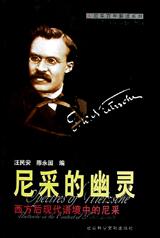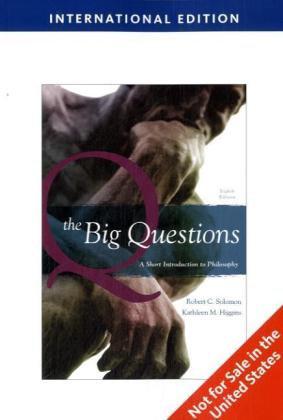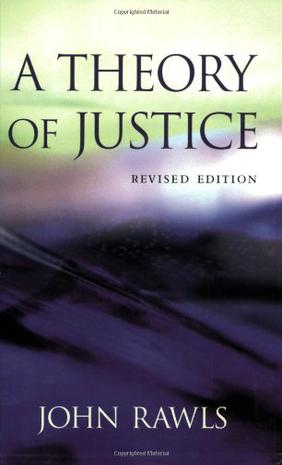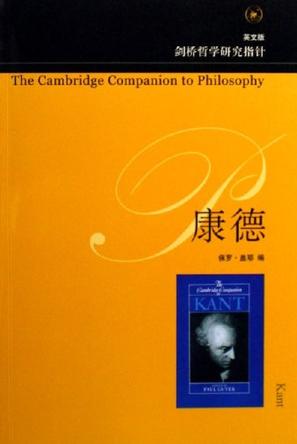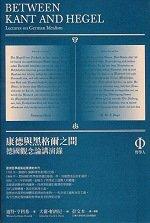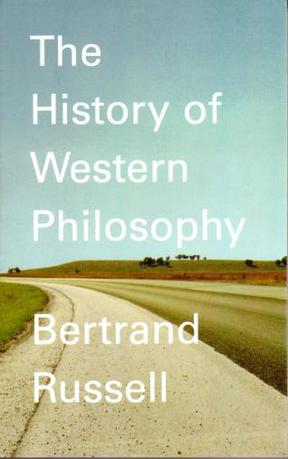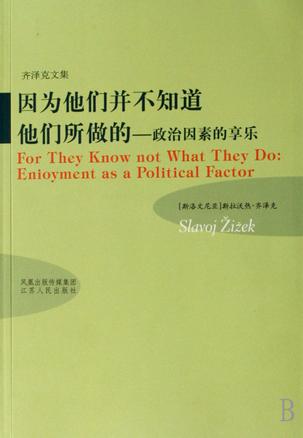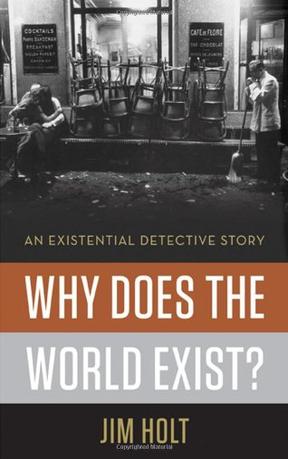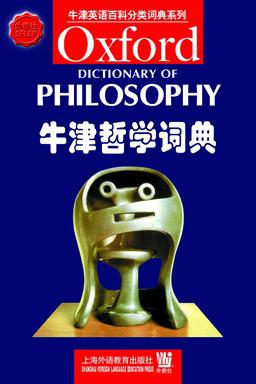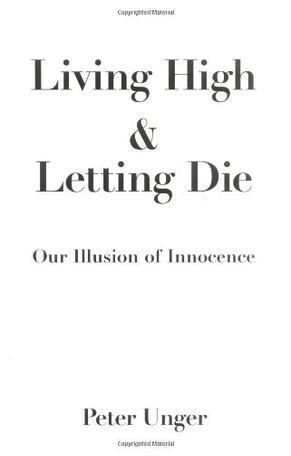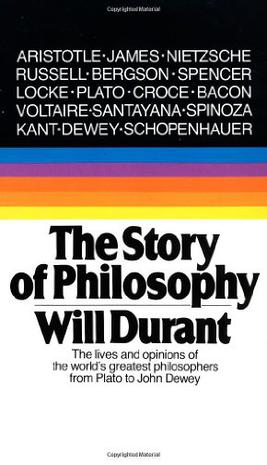欢迎来到相识电子书!
标签:philosophy
-
尼采的幽灵
本书是一本论文集,汇集了米歇尔·福柯、乔治·巴塔耶、雅克·德里达、尤尔根·哈贝马斯、吉尔 、德勒兹等英、美、法、德、意等国著名学术大师的20篇文章,全书约40万字,比较全面地介绍了尼采关于哲学、权力意志、心理学、戏剧、艺术、现代性、宗教、谱系学、解释学、逻辑学等方面的思想;这些学术思想大师对尼采思想的评述;海德格尔、本杰明、德勒兹等人在其学术体系形成的过程中所受尼采思想的影响。本书通过整理、汇集百年来这些西方学术大师对尼采思想的解读,把他们在不同历史时期、不同文化背景之下对尼采的解读介绍给中国读者,作为中国学界进一步解读尼采的文化和思想资源。 对于欧洲的三大思想家之一的尼才,百年来西方学术界有许多争论和研究。本书则是从浩瀚的文 丛中精选了近年来世界公认的西方著名思想家的作品。作者的强大阵容是本书最具吸引人的特点之一。书中的任何一位学者都是中国学界熟知的西方著名学术大师。书中涉及的内容之广泛,哲理之深邃,使本书成为一本在尼采研究中非常有价值的学术参考书。 -
The Big Questions
It's time for an introduction to philosophy textbook that you can relate to and enjoy reading! THE BIG QUESTIONS: A SHORT INTRODUCTION TO PHILOSOPHY, International Edition tackles the tough issues and helps you form your own opinions about course topics while presenting the best philosophical selections available. -
世界的逻辑构造
《世界的逻辑构造》由上海译文出版社出版。 -
欧洲哲学史上的经验主义和理性主义
欧洲哲学史上的经验主义和理性主义是哲学史上最为重要的学派之一,他们既对立又统一的矛盾发展过程构成了一段哲学史的丰富内容。本书就两派哲学产生的历史背景和思想渊源,两派的主要代表及其发展概况,两派论战所涉及的主要问题和各自的主要观点,以及两派哲学对后世的影响及其历史地位等几个方面的问题,作一些概括的介绍和提出一些不成熟的看法,以便为进一步对这问题的深入研究打下基础。里面的许多内容都具有可资借鉴的宝贵价值。 -
A Theory of Justice
A Theory of Justice is a widely-read book of political and moral philosophy by John Rawls. It was originally published in 1971 and revised in both 1975 (for the translated editions) and 1999. In A Theory of Justice, Rawls attempts to solve the problem of distributive justice by utilising a variant of the familiar device of the social contract. The resultant theory is known as "Justice as Fairness", from which Rawls derives his two famous principles of justice: the liberty principle and the difference principle. [edit] Objective In A Theory of Justice Rawls argues for a principled reconciliation of liberty and equality. Central to this effort is an account of the circumstances of justice (inspired by David Hume), and a fair choice situation (closer in spirit to Kant) for parties facing such circumstances, and seeking principles of justice to guide their conduct. These parties face moderate scarcity, and they are neither naturally altruistic nor purely egoistic: they have ends they seek to advance, but desire to advance them through cooperation with others on mutually acceptable terms. Rawls offers a model of a fair choice situation (the original position with its veil of ignorance) within which parties would hypothetically choose mutually acceptable principles of justice. Under such constraints, Rawls believes that parties would find his favoured principles of justice to be especially attractive, winning out over varied alternatives, including utilitarian and libertarian accounts. [edit] The "original position" Main article: Original position Like Hobbes, Locke, Rousseau and Kant, Rawls belongs to the social contract tradition. However, Rawls' social contract takes a slightly different form from that of previous thinkers. Specifically, Rawls develops what he claims are principles of justice through the use of an entirely and deliberately artificial device he calls the Original position, in which everyone decides principles of justice from behind a veil of ignorance. This "veil" is one that essentially blinds people to all facts about themselves that might cloud what notion of justice is developed. "no one knows his place in society, his class position or social status, nor does anyone know his fortune in the distribution of natural assets and abilities, his intelligence, strength, and the like. I shall even assume that the parties do not know their conceptions of the good or their special psychological propensities. The principles of justice are chosen behind a veil of ignorance." According to Rawls, ignorance of these details about oneself will lead to principles which are fair to all. If an individual does not know how he will end up in his own conceived society, he is likely not going to privilege any one class of people, but rather develop a scheme of justice that treats all fairly. In particular, Rawls claims that those in the Original Position would all adopt a maximin strategy which would maximise the position of the least well-off. They are the principles that rational and free persons concerned to further their own interests would accept in an initial position of equality as defining the fundamentals of the terms of their association [Rawls, p 11] It is important to keep in mind that the agreement that stems from the original position is both hypothetical and nonhistorical. It is hypothetical in the sense that the principles to be derived are what the parties would, under certain legitimating conditions, agree to, not what they have agreed to. In other words, Rawls seeks to persuade us through argument that the principles of justice that he derives are in fact what we would agree upon if we were in the hypothetical situation of the original position and that those principles have moral weight as a result of that. It is nonhistorical in the sense that it is not supposed that the agreement has ever, or indeed could actually be entered into as a matter of fact. Rawls claims that the parties in the original position would adopt two such principles, which would then govern the assignment of rights and duties and regulate the distribution of social and economic advantages across society. [edit] The First Principle of Justice “ First: each person is to have an equal right to the most extensive scheme of equal basic liberties compatible with a similar scheme of liberties for others.[1] ” The basic liberties of citizens are, roughly speaking, political liberty (i.e., to vote and run for office); freedom of speech and assembly, liberty of conscience and freedom of thought, freedom of the person along with the right to hold (personal) property; and freedom from arbitrary arrest. It is a matter of some debate whether freedom of contract can be inferred as being included among these basic liberties. The first principle is more or less absolute, and may not be violated, even for the sake of the second principle, above an unspecified but low level of economic development (i.e. the first principle is, under most conditions, lexically prior to the second principle). However, because various basic liberties may conflict, it may be necessary to trade them off against each other for the sake of obtaining the largest possible system of rights. There is thus some uncertainty as to exactly what is mandated by the principle, and it is possible that a plurality of sets of liberties satisfy its requirements. [edit] The Second Principle of Justice Social and economic inequalities are to be arranged so that (Rawls, 1971, p.303): a) they are to be of the greatest benefit to the least-advantaged members of society (the difference principle). b) offices and positions must be open to everyone under conditions of (fair equality of opportunity) Rawls' claim in b) is that departures from equality of a list of what he calls primary goods – 'things which a rational man wants whatever else he wants' [Rawls, 1971, pg. 92] – are justified only to the extent that they improve the lot of those who are worst-off under that distribution in comparison with the previous, equal, distribution. His position is at least in some sense egalitarian, with a proviso that equality is not to be achieved by worsening the position of the least advantaged. An important consequence here, however, is that inequalities can actually be just on Rawls's view, as long as they are to the benefit of the least well off. His argument for this position rests heavily on the claim that morally arbitrary factors (for example, the family we're born into) shouldn't determine our life chances or opportunities. Rawls is also keying on an intuition that we do not deserve inborn talents, thus we are not entitled to all the benefits we could possibly receive from them, meaning that at least one of the criteria which could provide an alternative to equality in assessing the justice of distributions is eliminated. The stipulation in a) is prior to that in b) and requires more than meritocracy. 'Fair equality of opportunity' requires not merely that offices and positions are distributed on the basis of merit, but that all have reasonable opportunity to acquire the skills on the basis of which merit is assessed. It is often thought that this stipulation, and even the first principle of justice, may require greater equality than the difference principle, because large social and economic inequalities, even when they are to the advantage of the worst-off, will tend to seriously undermine the value of the political liberties and any measures towards fair equality of opportunity. [edit] Relationship to Rawls's later work Although Rawls never retreated from the core argument of A Theory of Justice, he modified his theory substantially in subsequent works. The discussion in this entry is limited to his views as they stood in A Theory of Justice, which stands on its own as an important (if controversial and much criticized) work of political philosophy. His subsequent work is discussed in the entry titled John Rawls. Of particular note is his work Justice as Fairness: A Restatement (2001), in which he clarified and re-organised much of the argument of A Theory of Justice. [edit] Critics of A Theory of Justice A Theory of Justice made a significant contribution to re-establishing interest in political philosophy, and so it has served as the basis for much of the debate since, meaning that it has been much criticized. In particular, Rawls's colleague at Harvard Robert Nozick wrote a defence of libertarian justice in the aftermath of A Theory of Justice, called Anarchy, State, and Utopia, which was critical of Rawls's work. Because it is, in part, a reaction to A Theory of Justice, the two books are now often read together. Another colleague of Rawls's from Harvard, Michael Walzer, wrote a defence of communitarian political philosophy, entitled "Spheres of Justice," as a result of a seminar he co-taught with Nozick. Robert Paul Wolff wrote Understanding Rawls: A Critique and Reconstruction of A Theory of Justice immediately following the publication of A Theory of Justice, which criticized Rawls from a roughly Marxist perspective. Wolff argues in this work that Rawls's theory is an apology for the status quo insofar as it constructs justice from existing practice and forecloses the possibility that there may be problems of injustice embedded in capitalist social relations, private property or the market economy. Feminist critics of Rawls largely focused on the extent to which Rawls's theory could account for, at all, injustices and hierarchies embedded in familial relations. Rawls argued that justice ought only to apply to the "basic structure of society" for instance, and feminists rallying around the theme of "the personal is political" took Rawls to task for failing to account for injustices found in patriarchal social relations and the sexual division of labor. The assumptions of the original position, and in particular, the use of maximin reasoning, have also been criticized, with the implication either that Rawls designed the original position to derive the two principles, or that an original position more faithful to its initial purpose would not lead to his favored principles. However Rawls does not deny this, he uses the original position in conjunction with an intuitive argument to justify his claim of justice as fairness. Some critics allege that Rawls' argument is weakened in failing to denote healthcare as a primary good. Proponents respond by asserting that affordable and accessible healthcare arises as an inevitable result of the benefits attained by following through with the Original Position. One of the most influential recent criticisms of Rawls' theory has come from the philosopher G.A. Cohen, in a series of influential papers that culminate in his 2000 book If You're An Egalitarian, How Come You're So Rich? Cohen's criticisms are levelled against Rawls' avowal of inequality under the difference principle, against his application of the principle only to social institutions, and against Rawlsian fetishism with primary goods (the metric which Rawls chooses as his currency of equality). -
康德
康德是现代哲学当中至关重要的思想家。本书集合了欧美十余位康德研究权威,深入剖解康德在认识论、形而上学、科学哲学、道德与政治哲学、美学、宗教哲学等领域所带来的观念革命。《康德》一书是目前唯一系统全面综述康德思想各个领域、同时也是第一本对近二十年来康德研究进行综合回顾的指南读物。 -
康德与黑格尔之间
欧洲哲学最风起云涌的年代1781 年,康德的《纯粹理性批判》出版。1804 年,黑格尔的哲学发展迈出最后一步,而康德也在该年过世。短短二十三年的时间,却发生了哲学史上最惊人的变迁:从康德到费希特与谢林、再到黑格尔的整个哲学发展。没有这场变迁,就没有浪漫主义,也无由出现黑格尔系统崩溃后的产物——马克思主义与存在主义,甚至也无从导致欧陆哲学与英美哲学的分裂。 第二次世界大战后,亨利希于1973年首次对美国的学生演讲,优雅地诠释德国观念论的历史及其与当代哲学的关系。亨利希动人地诠释了德国观念论的历史及其与当代哲学的关系:他从康德系统里的结构和冲突开始,自近代思潮的哲学主题和当时的文化状况去理解康德主义以及斯宾诺莎哲学的重生;接着仔细铺陈费希特的《知识学》,然后综观由诺瓦利斯、施列格和贺德林所开启的浪漫主义;最后以黑格尔系统的简述做结。 -
A History of Western Philosophy
Since its first publication in 1945, Lord Russell's A History of Western Philosophy has been universally acclaimed as the outstanding one-volume work on the subject -- unparalleled in its comprehensiveness, its clarity, its erudition, its grace and wit. In seventy-six chapters he traces philosophy from the rise of Greek civilization to the emergence of logical analysis in the twentieth century. Among the philosophers considered are: Pythagoras, Heraclitus, Parmenides, Empedocles, Anaxagoras, the Atomists, Protagoras, Socrates, Plato, Aristotle, the Cynics, the Sceptics, the Epicureans, the Stoics, Plotinus, Ambrose, Jerome, Augustine, Benedict, Gregory the Great, John the Scot, Aquinas, Duns Scotus, William of Occam, Machiavelli, Erasmus, More, Bacon, Hobbes, Descartes, Spinoza, Leibniz, Locke, Berkeley, Hume, Rousseau, Kant, Hegel, Schopenhauer, Nietzsche, the Utilitarians, Marx, Bergson, James, Dewey, and lastly the philosophers with whom Lord Russell himself is most closely associated -- Cantor, Frege, and Whitehead, co-author with Russell of the monumental Principia Mathematica. -
因为他们并不知道他们所做的
两年前作者的第一本书,英文版的《意识形态的崇高客体》很受欢迎,但他却始终以为,这本书的成就远远超过前者:因为这是一本理论性作品,不像《意识形态的崇高客体》中的一系列逸闻趣事和电影脚本那样不系统。 每一位读者的反应对作者来说都是一种考验:如果有人说:“读过《意识形态的崇高客体》的那些精彩内容之后,再读这本书令人感到有些乏味,有些失望,”那么,他显然没有理解这两本书的核心论点。迄今为止,作者的态度仍然是:不想谈论《因为他们并不知道他们所做的》一书的读者,对《意识形态的崇高客体》同样应该缄口不语。 第二版前言:独自在理性范围内享乐 通向辩证唯物主义的艰难之旅——从能指的逻辑……——……到黑格尔的辩证法——行为——战时的禅宗——宗教——再谈行为——意识形态——存在着一种减法政治吗?——拉康和巴迪欧——多余—享乐 导言:一个玩笑的命运 第一部分 合众为一 第1章 论这个一 一、主人能指的诞生 不可分析的斯洛文尼亚人——让皇帝穿上衣服!——“缝合点”——“作为另一能指主体的能指”——为什么道德是阴谋的最黑暗领域? 二、如何数零为一 德里达:黑格尔的读者——作为“反思决断”的认同——“上帝是……”——“性质的交叉交换”——那个“能指的逻辑”——被主体化的结构——“主体的隐喻”——黑格尔的“一个一” 第2章 反复无常的同一性 一、不可能性 黑格尔的“一元论”——“精神的无声编织”——“从虚无通过虚无到虚无”——不可能性的条件 二、反映 重新标记的逻辑——被重新标记的深渊——从失败的反映到反映的失败——镜子的锡箔 第二部分 逻辑辩证法及其不足 第3章 黑格尔的语言 一、着眼于我们的凝视 如何研究失败的整体——思辨同一性的匮乏——语言及其限制——关于所有的争论 二、缺席判断 “言语是一头大象”——“性化”的种种悖论——必然性如何源于偶然性——“在多于父亲自身的父亲之中” 第4章 关于他者 一、歇斯底里症、确定性和怀疑 黑格尔学派的维特根斯坦——黑格尔的歇斯底里戏剧——“我思”与强制性选择——“客观确定性”——从A到S 二、“形式方面” 一个幽灵的历史——言说与欲言之意——黑格尔的述行成分——再谈“理性的机巧” 第三部分 附带的花岗岩常规 第5章 吉人自有天相吗? 一、为什么一位辩证学家应该学着数到四? 三位一体与其余数——新教主义,雅各宾主义……——……和其他“消失的调解者”——“敲击你的手指……”——为什么真理总具有政治性? 二、意识形态“丢失的链条” 自我指涉的结构及其虚空——叙述起源——所谓的“原始积累”——一个有限整体的悖论——康德哲学的那物 第6章 一物生非 一、物神崇拜类型的变体 为什么萨德是康德的真理?——“极权主义的客体”——“我知道,但还是……”——传统的、操纵性的、极权主义的权力 二、“国王是一个物” 国王的两个身体——列宁的两个身体——如何从大众中提取选民呢?——“主人的假设”——国王是虚空的位置持有者 译后记 -
Why Does the World Exist?
In this astonishing and profound work, an irreverent sleuth traces the riddle of existence from the ancient world to modern times. Whether framed philosophically as “Why is there a world rather than nothing at all?” or more colloquially as “But, Mommy, who made God?” the metaphysical mystery about how we came into existence remains the most fractious and fascinating question of all time. Following in the footsteps of Christopher Hitchens, Roger Penrose, and even Stephen Hawking, Jim Holt emerges with an engrossing narrative that traces our latest efforts to grasp the origins of the universe. As he takes on the role of cosmological detective, the brilliant yet slyly humorous Holt contends that we might have been too narrow in limiting our suspects to God vs. the Big Bang. Whether interviewing a cranky Oxford philosopher, a Physics Nobel Laureate, or a French Buddhist monk, Holt pursues unexplored and often bizarre angles to this cosmic puzzle. The result is a brilliant synthesis of cosmology, mathematics, and physics—one that propels his own work to the level of philosophy itself. -
牛津哲学词典
《牛津哲学词典》共收录词条2500条,包括最新的哲学术语、概念以及500多位著名哲学家的生平介绍和相邻学科中有关哲学的术语,介绍了从亚里斯多德到禅宗几乎所有的哲学家和哲学思想,是哲学专业学生和广大读者的理想哲学读物。这本词典通俗生动,易于理解,不仅涵盖了西方哲学的传统观点,而且还收录了中国、印度、伊斯兰和犹太哲学中的重要观点。书后并附哲学界大事年表,是一本客观、权威的英文哲学词典。 -
What Does It All Mean?
In this lucid and accessible book, Thomas Nagel explores the central questions of philosophy thoughtfully, clearly, and with humour. He demonstrates that philosophy is an indispensable key to understanding our lives, and far from being an arcane academic discipline, can be enjoyed by all. -
《存在与时间》释义
2011国家哲学社会科学成果文库 著名哲学教授张汝伦多年研究成果 逐字解读海德格尔经典哲学著作《存在与时间》 《存在与时间》被国际学术界公认为“难治”,从出版到现在,80年间不知有多少人为读懂这部重要的著作伤透了脑筋。在这种情况下,一部可靠的释义加导读的著作应该是一般读者甚至学界中人所需要的。因此,国外从上个世纪七八十年代开始陆陆续续出版了一些解释注疏《存在与时间》的导读行著作,我国至今还未见有这样的著作出版。这部《<存在与时间>释义》,就是为了填补这个空白。 ——张汝伦 内容简介 本书是张汝伦教授对德国哲学家海德格尔的著作《存在与时间》的释义之作,全书依《存在与时间》的篇章内容,借鉴中国古代传统的经典章句的典范,采取逐章逐节逐句解释的方法,清晰解读这部20世纪哲学著作中的“难治”之作。 -
Living High and Letting Die
By contributing a few hundred dollars to a charity like UNICEF, a prosperous person can ensure that fewer poor children die, and that more will live reasonably long, worthwhile lives. Even when knowing this, however, most people send nothing, and almost all of the rest send little. What is the moral status of this behavior? To such common cases of letting die, our untutored response is that, while it is not very good, neither is the conduct wrong. What is the source of this lenient assessment? In this contentious new book, one of our leading philosophers argues that our intuitions about ethical cases are generated not by basic moral values, but by certain distracting psychological dispositions that all too often prevent us from reacting in accord with our commitments. Through a detailed look at how these tendencies operate, Unger shows that, on the good morality that we already accept, the fatally unhelpful behavior is monstrously wrong. By uncovering the eminently sensible ethics that we've already embraced fully, and by confronting us with empirical facts and with easily followed instructions for lessening serious suffering appropriately and effectively, Unger's book points the way to a compassionate new moral philosophy. -
The Story of Philosophy
The Story of Philosophy chronicles the ideas of the great thinkers, the economic and intellectual environments which influenced them, and the personal traits and adventures out of which each philosophy grew. -
笛卡尔思辨哲学
《哲人咖啡厅:笛卡尔思辨哲学》是笛卡尔原著代表作的精选译本,基本囊括了他的主要思想和理论,为便于读者阅读与理解,编辑中选入了几位学者是的解说作为附录,尤其是尚新建先生译介的笛卡尔晚期作品“灵魂的激情”是鲜为人知的。我们学习笛卡尔的思辨哲学,为使我们的思考更加缜密,提升我们的思考的境界与深度。学会理性的思考,对人生将是受用不尽的。 -
游戏规则
《游戏规则/醒客悦读》于1919年出版,立即在哲学界引起轰动。维特根斯坦以为他已经解决了一切哲学问题,退隐山林去当小学教师。后于1928年重返剑桥,并于1936年接替穆尔成为哲学教授。他后期的主要著作为《哲学研究》。 维特根斯坦具有极为深厚的文化素养,对人类生存本质有着深刻的感知,他在理智上所具有的特殊天赋,使他在哲学上达到了其他哲学家难以企及的深度。本书选择的正是这位天才人物有关美学、心理学、音乐、艺术、宗教等的精彩论述,读来的确是人生的一大享受。 本书由国内研究维特根斯坦的专家学者翻译和编选。它以维特根斯坦全集为蓝本,精选出了能够集中反映维特根斯坦天才思想的精彩文字。翻译的专业化和编选的大众化使得这个选本成为迄今为止国内普通读者了解维特根斯坦思想的最为放心的文本。 -
西方哲学史
哲学史在很多方面就像史诗式的小说。可敬的先哲们位增慧后学,经过痛苦的思想砥砺,缔造了哲学传统。 在这巨大的哲学家族中总会有一些“不安分子”(blacksheep)频生事端、搅动倪墙,甚至触怒当政者。哲学流派之间也经常针锋相对、势同水火,但却从未真正分出胜负。这些对峙随着传奇一起代际相传,表现为一种发展的进程。旧论弃如敝屣,新调登堂入室,尽管有时候只是风行一时而已。 因此,正像一个大哲所说的,哲学史势观念的历险,这本书就是试图勾勒出这出大戏的线索。
热门标签
下载排行榜
- 1 梦的解析:最佳译本
- 2 李鸿章全传
- 3 淡定的智慧
- 4 心理操控术
- 5 哈佛口才课
- 6 俗世奇人
- 7 日瓦戈医生
- 8 笑死你的逻辑学
- 9 历史老师没教过的历史
- 10 1分钟和陌生人成为朋友

